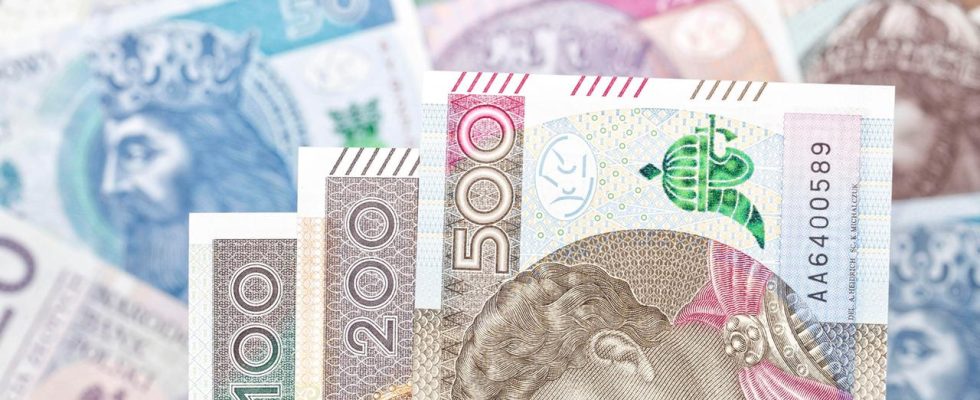The national currency, the zloty, is gaining significantly in value on the foreign exchange market following the parliamentary elections in Poland. Experts now expect positive consequences for the Polish economy.
The Poles have voted – and the winner on the foreign exchange market already seems to have been decided. Binding election results are not expected until tomorrow. But as soon as the first projections came in that a coalition of opposition parties could achieve a majority, the Polish zloty went straight up.
The increases against the dollar and euro were up to two percent. The Polish currency had already risen significantly in the previous weeks, when surveys had suggested the possibility of such an election outcome.
hope on billions EU funds
But why is the reaction of the foreign exchange market to the parliamentary elections in Poland so positive? In the short term, it is certainly the prospect of the release of billions in EU funds that is causing the zloty to appreciate. Brussels had the funds blocked because the previous ruling party Law and Justice (PiS) ignored the “rules of democracy”.
Now the former EU Council President and opposition leader Donald Tusk could forge a new government – and end the ongoing dispute with Brussels. Analysts at the major Swiss bank Unicredit believe it is likely that Poland will turn pro-EU and reverse the controversial judicial reform.
“Polexit” danger off the table
But that alone is not the reason for the rising zloty exchange rate. “Another legislative period under PiS rule – possibly in collaboration with right-wing extremist forces – would have increased the possibility that Poland would finally and irreversibly drift towards an autocratic form of state and society,” explains Ulrich Leuchtmann, foreign exchange expert at Commerzbank. “In the medium to long term, this path would probably have taken Poland out of the EU.”
Such prospects would be poison for investments. Now that a possible “Polexit” appears to be off the table, there are additional reasons to invest in the country and therefore to import capital. This in turn strengthens the zloty exchange rate.
Polish stocks and bonds in demand
Investors also reacted positively to the election results in Poland on the stock and bond markets. The Polish leading index WIG20 rose by over three percent. Polish government bonds were also in demand. In return, the yield fell significantly – the risk premium for ten-year securities compared to German federal bonds fell to its lowest level in around a year.
The prospect of a radical political turnaround in its eastern neighbor has also raised hopes in the German economy. The head of foreign trade at the German Chamber of Commerce and Industry (DIHK), Volker Treier, sees the increased chances of a more Europe- and Germany-friendly government in Poland as an “encouraging sign”.
Poland is now Germany’s fifth most important trading partner – ahead of Italy or the United Kingdom. Last year, Germany exported goods worth 90.6 billion euros to Poland. For comparison: in 2012 the value of exports to Poland amounted to 41.8 billion euros.

